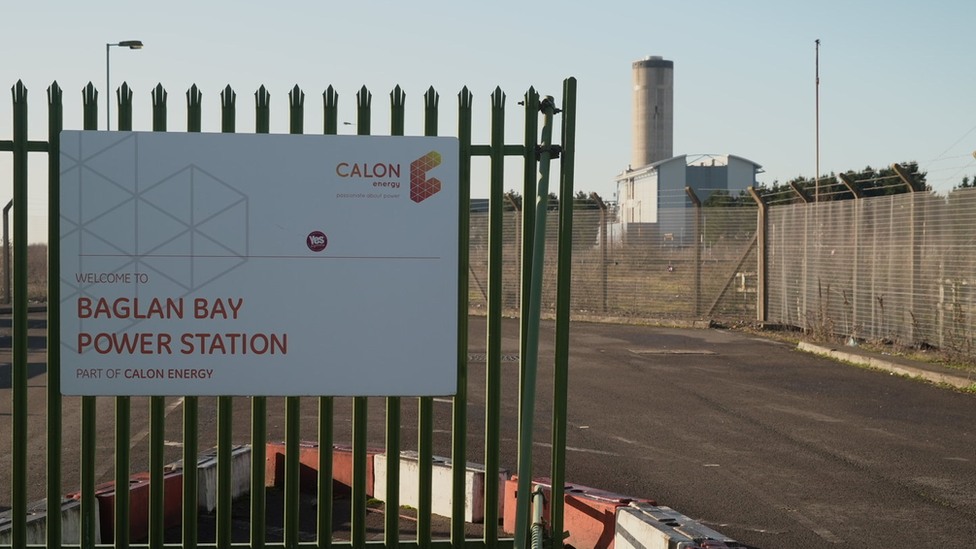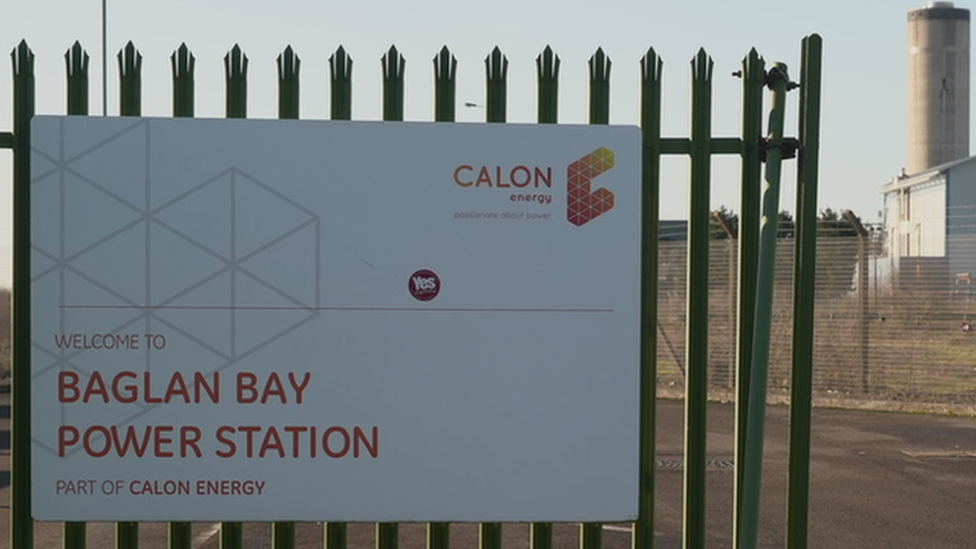Baglan Energy Park: 'Dangerous precedent' to keep power on
- Published

The power station stopped generating electricity in July 2020
Forcing a liquidator to continue providing electricity to businesses could "set a dangerous precedent", a court has heard.
The official receiver for Baglan Bay Power Station is fending off a legal bid for an injunction.
Power from the station is used by businesses and pumping stations at Baglan Energy Park.
The High Court was told a successful injunction would force the receiver to act beyond the powers they have.
But the Welsh governments has claimed the official receiver - an officer of the UK government's Insolvency Service - failed to consider the human rights of businesses and residents in liquidating the company.
They warned on Monday that pumps could fail if they are reliant on generators, potentially flooding local homes.
Paper mill Sofidel, the court heard, could have to close its factory at the site with the loss of more than 320 jobs.
The gas-fired power station was switched off in July 2020 and power has been provided via a private wire network through a substation on the site.
The official receiver has agreed to keep the power on while the legal action is underway, external.
The application for an injunction from the Welsh Government, Welsh Water, Neath Port Talbot Council and tissue firm Sofidel, is being heard at the High Court.
Daniel Bayfield, representing the official receiver, said while the receiver was sympathetic, he warned of "setting a dangerous precedent".
"The continued provision of electricity in these circumstances would be flatly inconsistent with the liquidators' statutory functions, and outwith [outside] the scope of the powers of the liquidator"
A liquidator, he said, can carry on with a business only where it is "with a view to winding up the company".
"It's not with a view to avoiding adverse consequences for customers", Mr Bayfield said.

Plans are to connect the energy park to the National Grid
'Human rights implications'
Ian Rogers, representing the applicants, said the Welsh government is concerned at the "Human Rights Act implications of this case".
He argued that the official receiver had "acted irrationally by failing to consider" human rights "of many many people", including residents of Baglan and businesses that could be affected by poorer air quality and flooding.
But the Welsh government's human rights arguments were disputed by the respondents.
The Human Rights Act places obligations on public bodies - but speaking for the respondents Jessica Simor said the liquidator is "not carrying out a public function and is not a public authority" under the act.
She argued that the Human Rights Act does not allow public bodies to act outside of their powers, or give courts a "wide roving power to step in when it sees a problem that it characterises as a human rights problem".
While she said Sofidel could be a victim as set out under human rights law for who can take a body to court, she said as public authorities the other claimants, including Welsh Water, could not be.
She said Sofidel had not shown that the liquidator had interfered with its human right to property.
The hearing concluded on Tuesday evening, with a judgement expected at a later date.
Related topics
- Published21 February 2022

- Published12 January 2022

- Published14 January 2022

- Published13 January 2022
